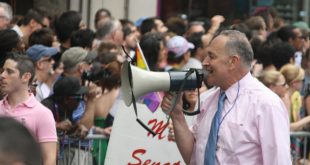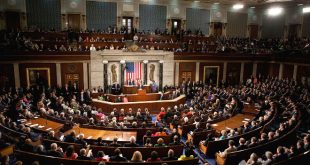 I have always been a great fan of the idea of “enterprise zones,” originally introduced by the late Cong. Jack Kemp in 1980.
I have always been a great fan of the idea of “enterprise zones,” originally introduced by the late Cong. Jack Kemp in 1980.
Jack Kemp and I were of one mind that free markets and enterprise are the way to reduce poverty, rather than government spending programs.
Kemp’s plan called for designating impoverished urban areas as “enterprise zones,” which would qualify them for a package of relaxed taxation and regulation from both federal and local governments. This was designed to attract businesses.
With this in mind, I was intrigued to read about the opening of a new Whole Foods market in the Englewood neighborhood of South Chicago.
We usually think of Whole Foods as expensive upscale organic fare for the well to do. So what are they doing in South Chicago?
According to The Wall Street Journal, “Englewood has a median income of $20,500, about one quarter of the average in most neighborhoods where Whole Foods operates.”
This seems to be an interesting combination of both creative private and government initiatives.
Whole Foods is looking for new opportunities to expand. Their traditional markets appear to be becoming saturated, and growth is slowing.
So why not look for new applications, new markets?
Meanwhile, Chicago Mayor Rahm Emanuel incentivized Whole Foods and other businesses by basically giving them land that, according to the Wall Street Journal, was valued at $3.1 million but was just standing idle.
This, plus a package of tax incentives, helped Whole Foods make the leap.
Whole Foods sent a team into the neighborhood to survey residents and develop a profile of products that could uniquely work there.
According to the news release from the company, of 100 employees that have been hired, 85 are from Chicago’s South Side, and 35 are from Englewood.
This includes some with jail or prison records. According to a company spokesperson, background checks on individuals were done only after they were identified as a good candidate for a position. If something then came up in the background check, they worked it out in one-on-one discussion with the candidate.
The company has initiated a host of programs to work with the local community, including helping local entrepreneurs develop and refine their business skills, and carrying locals products in the Whole Foods market.
Whole Foods has also opened in low-income neighborhoods in Detroit and New Orleans. And next year, it is looking to open in Newark, New Jersey.
This is an experiment worth keeping an eye on.
Kemp’s enterprise zone idea was more comprehensive, more boilerplate, but never got fully enacted into law.
In Kemp’s plan, federal government incentives included: a 90 percent reduction in payroll taxes for employers and workers under 21 and a 50 percent reduction for those 21 and older; cutting the capital gains tax in half; and another 15 tax cut if half the employees live in the zone. Local governments would reduce property taxes.
Kemp’s approach could be combined with the proposal of Cong. Paul Ryan to transform current federal spending on anti-poverty programs to block grants that local governments can decide how to use.
By all reports, growth of the American economy is way below historic averages. Plus we have poor urban areas that are in total stagnation. Growth comes from one thing — productivity. Productivity growth results from getting new output from existing human and physical resources.
To point out that economic growth and poverty reduction is not going to come from government spending programs is not an ideological thing. We have years of experience showing this to be the case.
Economic growth comes from the free human spirit and entrepreneurship. Enterprise zones redirect stagnant government capital to dynamic private capital.
I think it’s a great idea. Kudos to Whole Foods for its courage and creativity.
COPYRIGHT 2016 STAR PARKER
DISTRIBUTED BY CREATORS.COM
Photo credit: By GEOGOZZ – Own work, CC BY-SA 4.0, Link
 Star Parker is the founder and president of the Center for Urban Renewal and Education. Contact her at www.urbancure.org.
Star Parker is the founder and president of the Center for Urban Renewal and Education. Contact her at www.urbancure.org.
 CURE News and Clergy Blog News and Commentary for Christians
CURE News and Clergy Blog News and Commentary for Christians



